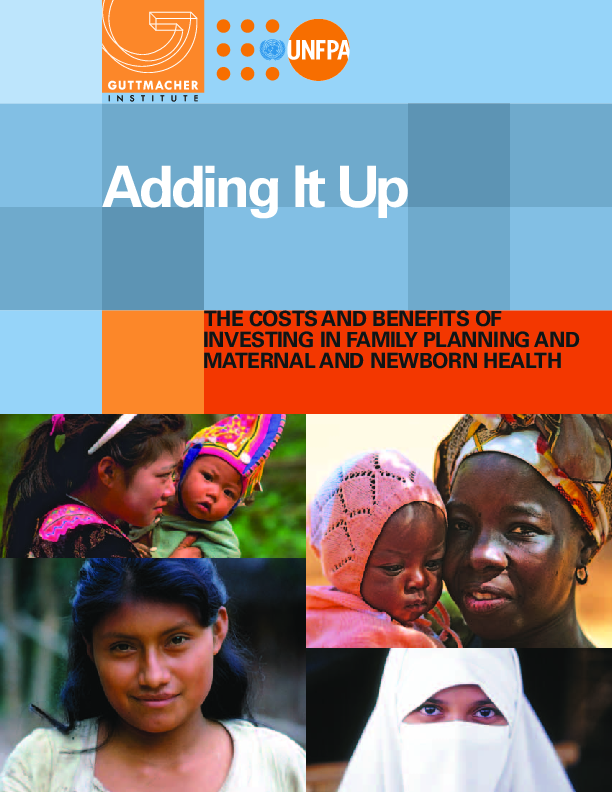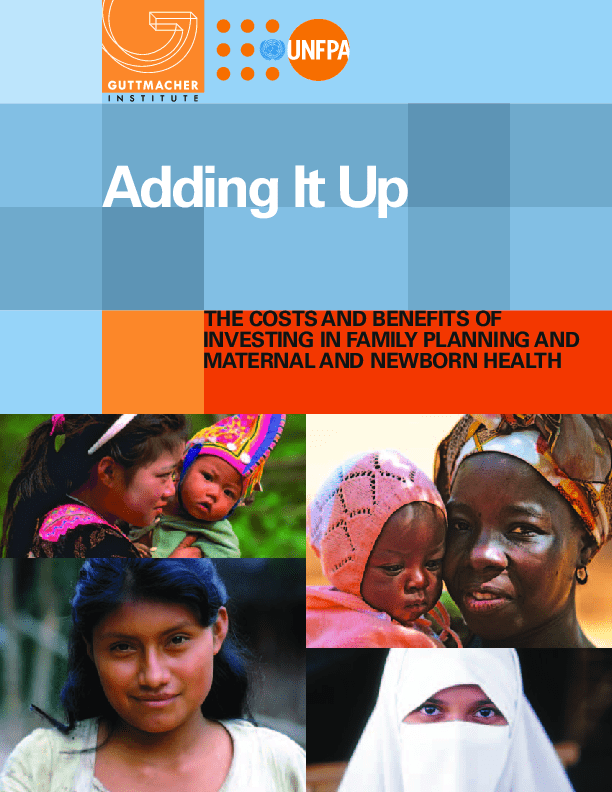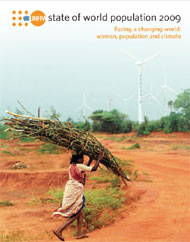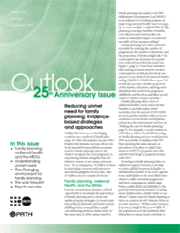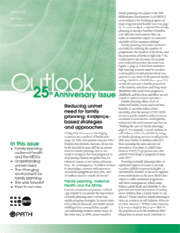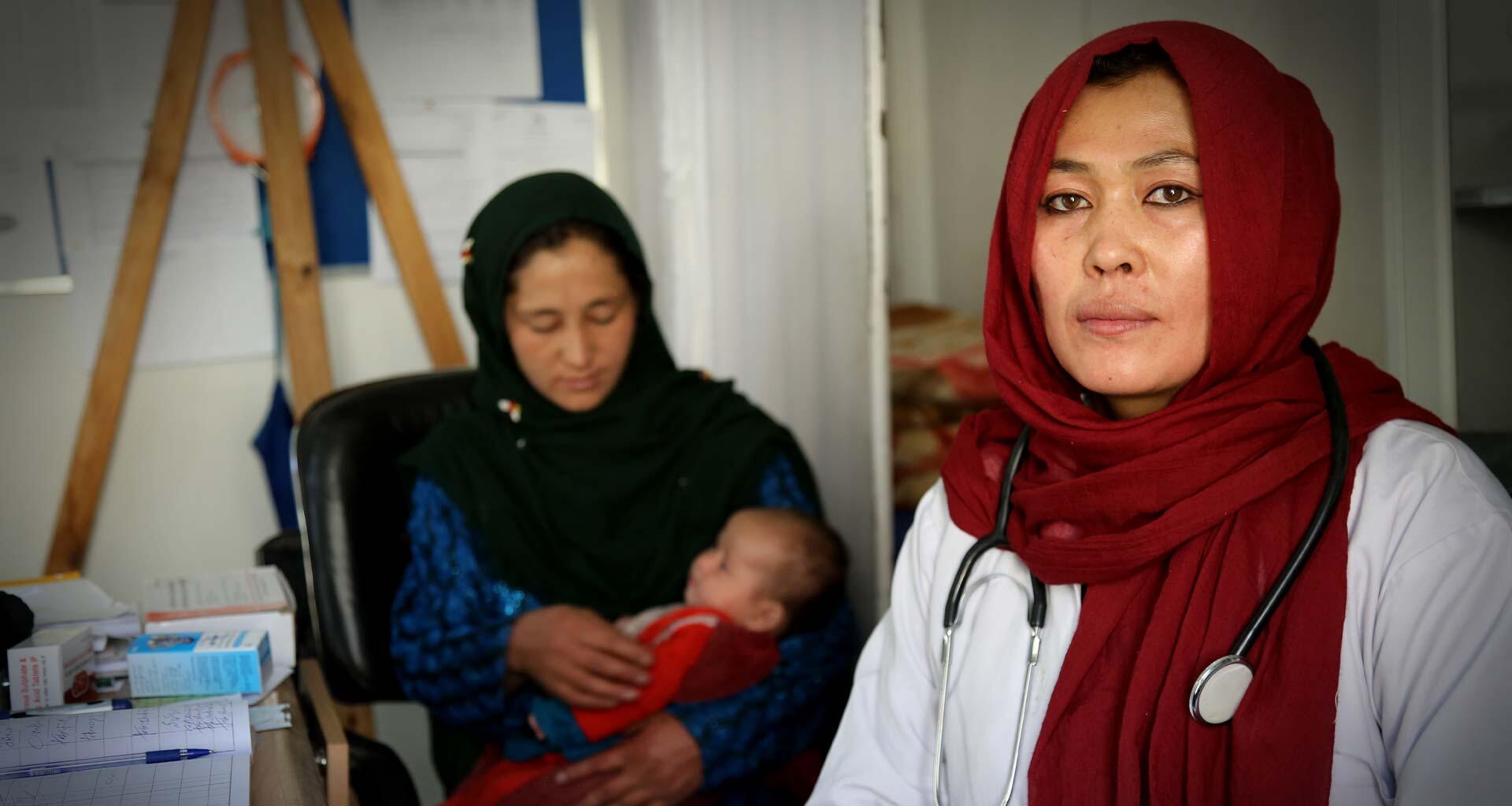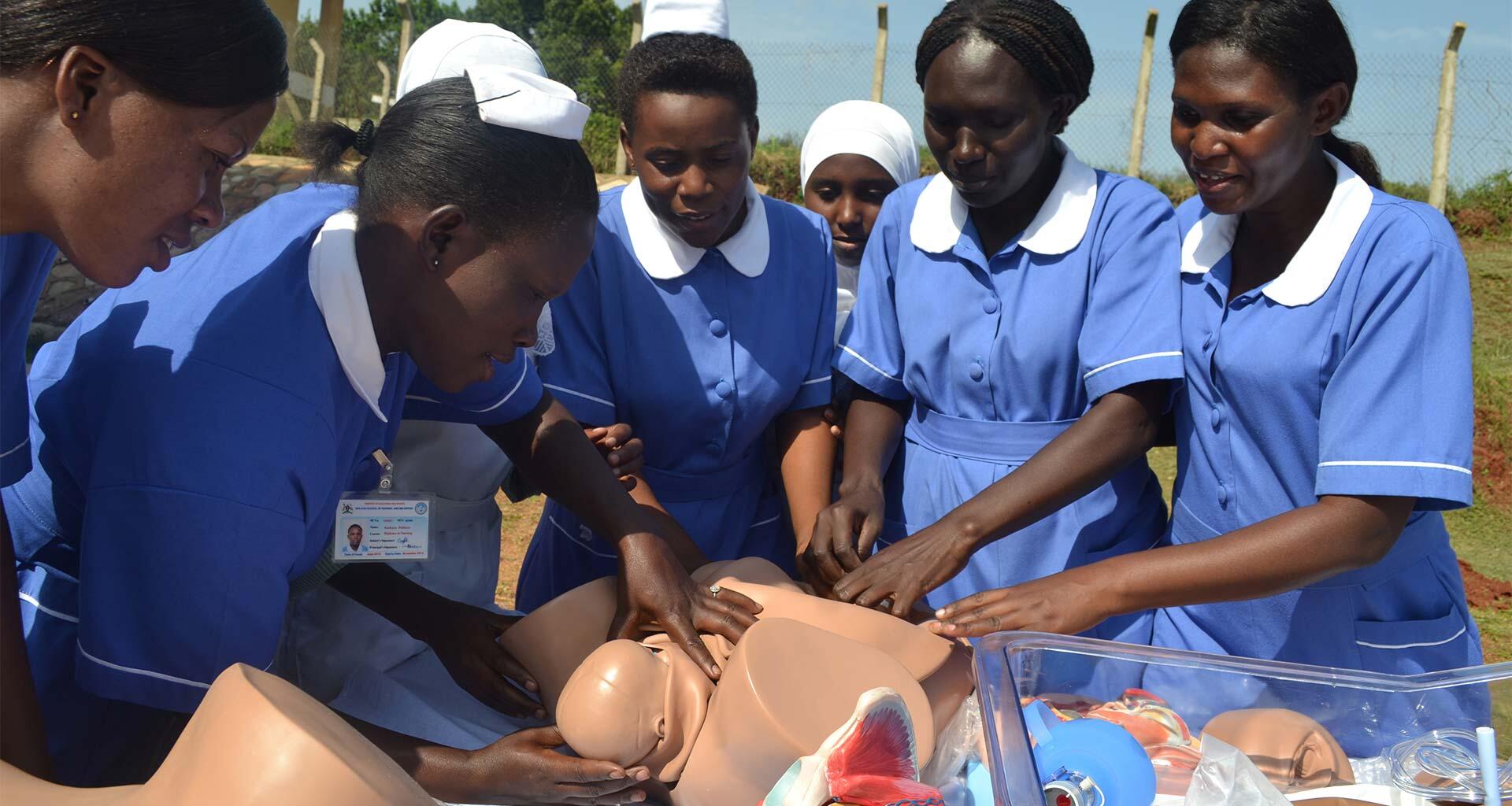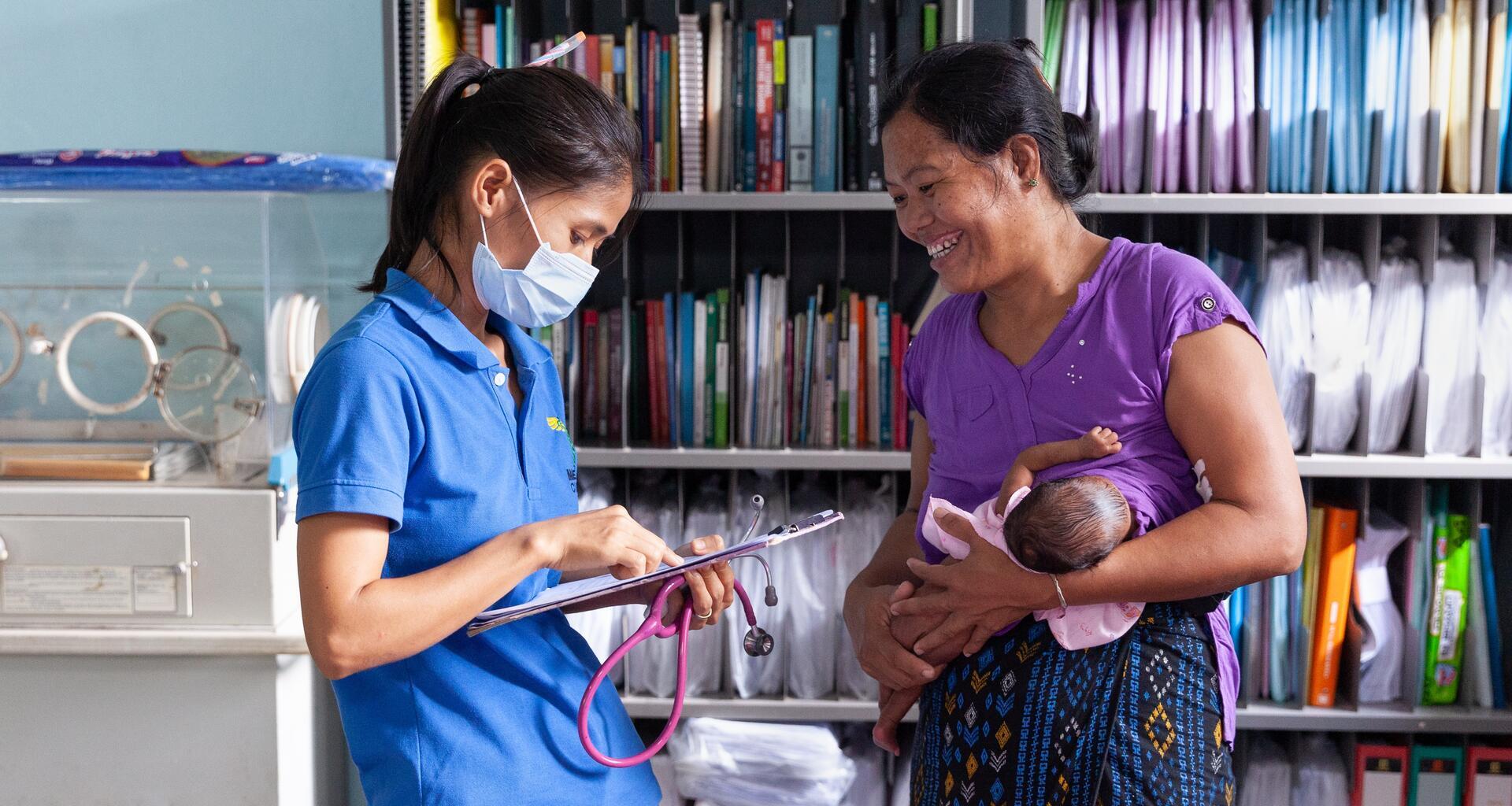Access to safe, voluntary family planning is a human right. Family planning is central to gender equality and women’s empowerment, and it is a key factor in reducing poverty. Yet in developing regions, an estimated 257 million women who want to avoid pregnancy are not using safe and effective family planning methods, for reasons ranging from lack of access to information or services to lack of support from their partners or communities. This threatens their ability to build a better future for themselves, their families and their communities. UNFPA works to support family planning by: ensuring a steady, reliable supply of quality contraceptives; strengthening national health systems; advocating for policies supportive of family planning; and gathering data to support this work. UNFPA also provides global leadership in increasing access to family planning, by convening partners – including governments – to develop evidence and policies, and by offering programmatic, technical and financial assistance to developing countries.
What is family planning?
Family planning is the information, means and methods that allow individuals to decide if and when to have children. This includes a wide range of contraceptives – including pills, implants, intrauterine devices, surgical procedures that limit fertility, and barrier methods such as condoms – as well as non-invasive methods such as the calendar method and abstinence. Family planning also includes information about how to become pregnant when it is desirable, as well as treatment of infertility.
UNFPA supports many aspects of voluntary family planning, including procuring contraceptives, training health professionals to accurately and sensitively counsel individuals about their family planning options, and promoting comprehensive sexuality education in schools. UNFPA never promotes abortion as a form of family planning.
Family planning saves lives
Contraceptives prevent unintended pregnancies, reduce the number of abortions, and lower the incidence of death and disability related to complications of pregnancy and childbirth. If all women in developing regions with an unmet need for contraceptives were able to use modern methods, maternal deaths would be reduced by about a quarter, according to recent estimates by UNFPA partners.
Additionally, male and female condoms, when used correctly and consistently, provide dual protection against both unintended pregnancy and sexually transmitted infections (STIs), including HIV.
Increasing knowledge about and access to modern contraception among adolescent girls is a crucial starting point for improving their long-term health. It is also essential for improving maternal and newborn health: around the world, complications from pregnancy and childbirth are the leading killer of adolescent girls (ages 15-19). Their babies also face a higher risk of dying than the babies of older women. Yet adolescents face enormous barriers to accessing reproductive health information and services.
UNFPA works to improve access to reproductive health services, including for marginalized young people. In Malawi, for example, health workers are receiving training on providing sensitive and accurate information and services tailored to adolescents.
Family planning empowers women
Access to contraceptive information is central to achieving gender equality. When women and couples are empowered to plan whether and when to have children, and how many, women are better enabled to complete their education; women’s autonomy within their households is increased; and their earning power is improved. This strengthens their economic security and well-being and that of their families.
Cumulatively, these benefits contribute to poverty reduction and global development. These benefits were recognized in the Programme of Action of the International Conference on Population and Development (ICPD), which called for “the right of men and women to be informed and to have access to safe, effective, affordable and acceptable methods of family planning of their choice.” This agreement lays the foundation for much of UNFPA’s work.
Family planning brings economic benefits
There are clear economic benefits to investing in family planning. For every additional dollar that is invested in contraception, the cost of pregnancy-related care will be reduced by about three dollars, according to recent projections by UNFPA's partner Guttmacher. In terms of socioeconomic benefits, achieving universal access to quality sexual and reproductive health services is estimated to yield returns of $120 for every dollar invested, according to some estimates.
Family planning can also help countries realize a ‘demographic dividend’, a boost in economic productivity that occurs when there are growing numbers of people in the workforce and falling numbers of dependents.
-Averted 14.5 million unintended pregnancies
-Averted 4.1 million unsafe abortions
-Prevented 39,000 maternal deaths
-Prevented 246,000 child deaths
-Saved $531,000,000 in direct health-care costs
Overcoming barriers to family planning
Yet women and girls around the world face serious barriers to using contraceptives. The UN Population Division's estimates show that in 2020, some 257 million women in developing countries wanted to prevent or delay pregnancy but were not using one of the modern, reliable forms of contraception.
Common reasons why women do not use reliable, modern contraceptives include logistical problems, such as difficulty travelling to health facilities or stock outs at health clinics, and social barriers, such as opposition by partners or families. Lack of knowledge also plays a role, with many women not understanding that they are able to become pregnant, not knowing what contraceptive methods are available, or having incorrect information about modern methods.
Poorer women and those in rural areas often have less access to family planning information and services. Certain groups – including adolescents, unmarried people, the urban poor, rural populations, sex workers and people living with HIV – also face additional barriers to family planning. This can lead to higher rates of unintended pregnancy, increased risk of HIV and other STIs, limited choice of contraceptive methods, and higher levels of unmet need for family planning. Particular attention must be paid to promoting their reproductive rights, access to family planning, and other sexual and reproductive health services.
UNFPA’s work
UNFPA works at every level to improve access to family planning and empower individual choices. UNFPA works with governments, NGOs, community-service organizations, faith-based organizations, youth groups and the private sector to strengthen community-based and youth-friendly reproductive health services, and to provide these services during humanitarian crises.
And through its UNFPA Supplies Partnership, UNFPA works with partners and governments to ensure access to a reliable supply of contraceptives, condoms, and medicines and equipment for family planning, STI prevention and maternal health services. UNFPA also works to integrate family planning services into primary health care, so that women and girls are able to access information and contraceptives no matter what health facility they visit.
UNFPA is a key partner in the Family Planning 2030 (FP2030) global partnership, which aims to achieve voluntary modern contraceptive use by anyone who wants it. This contributes towards a future where women and girls everywhere have the freedom and ability to lead healthy lives, make their own informed decisions about using contraception and having children, and participate as equals in society and its development. To meet this goal, and achieve the Sustainable Development Goals, UNFPA is focusing on four key areas:
- Investment in adolescents and youth
- Strengthening supply chains so that contraceptives reach those who need them
- Ensuring that family planning services and supplies have sustained funding support
- Improving the quality of care in family planning service
With its current strategic plan, UNFPA aims to achieve three world-changing transformative results: ending maternal deaths, ending unmet need for family planning, and ending gender-based violence and harmful practices. Providing family planning information and services is a critical part of these efforts.
As the world changes all around us, achieving universal access to family planning takes on new urgency. The UNFPA Strategy for Family Planning, 2022–2030, serves as a call to action for the importance of family planning and its transformational power in a diverse and changing world.
Updated 23 November 2022
Latest
Publications
Adding It Up 2009
Publications

